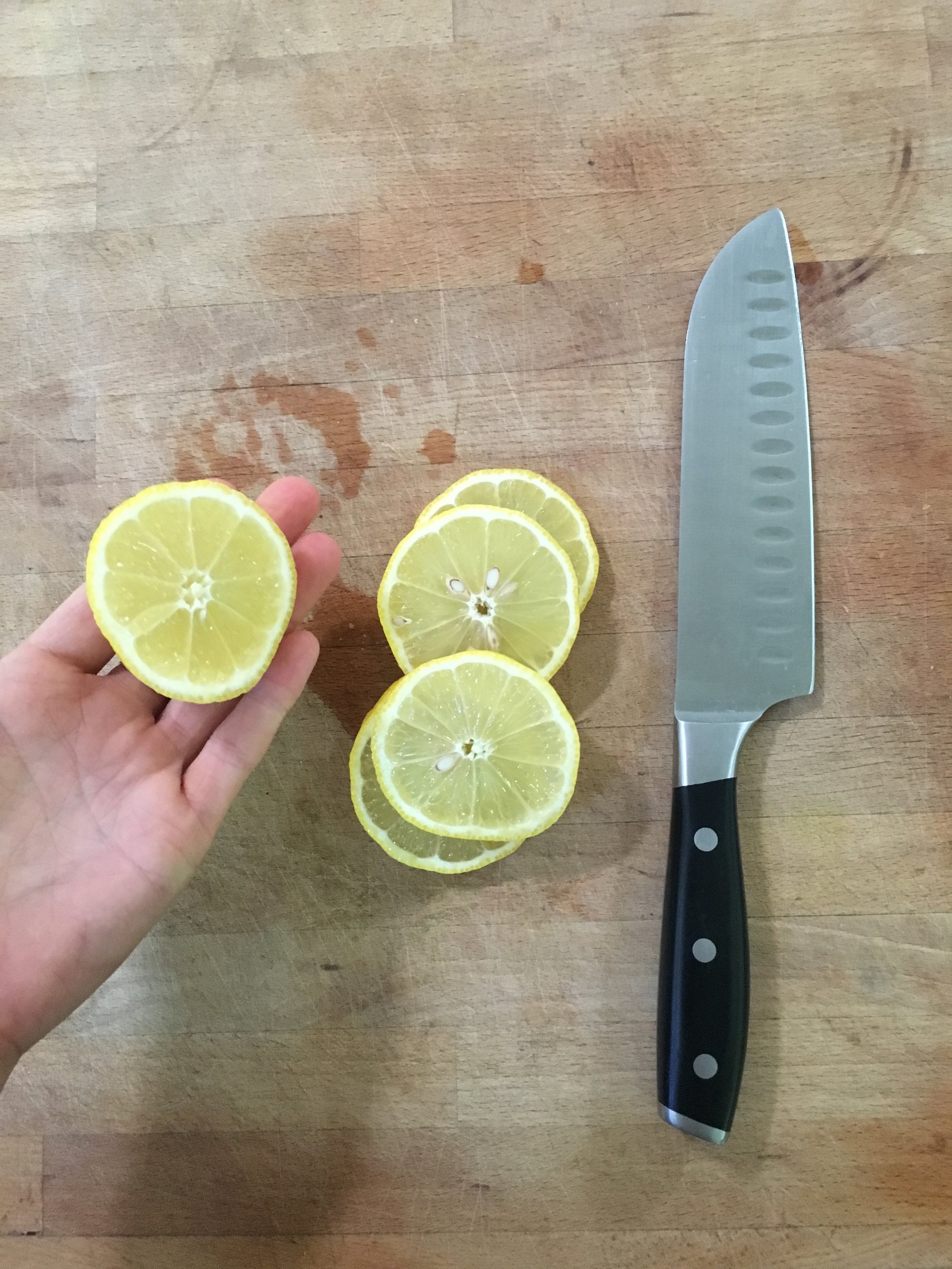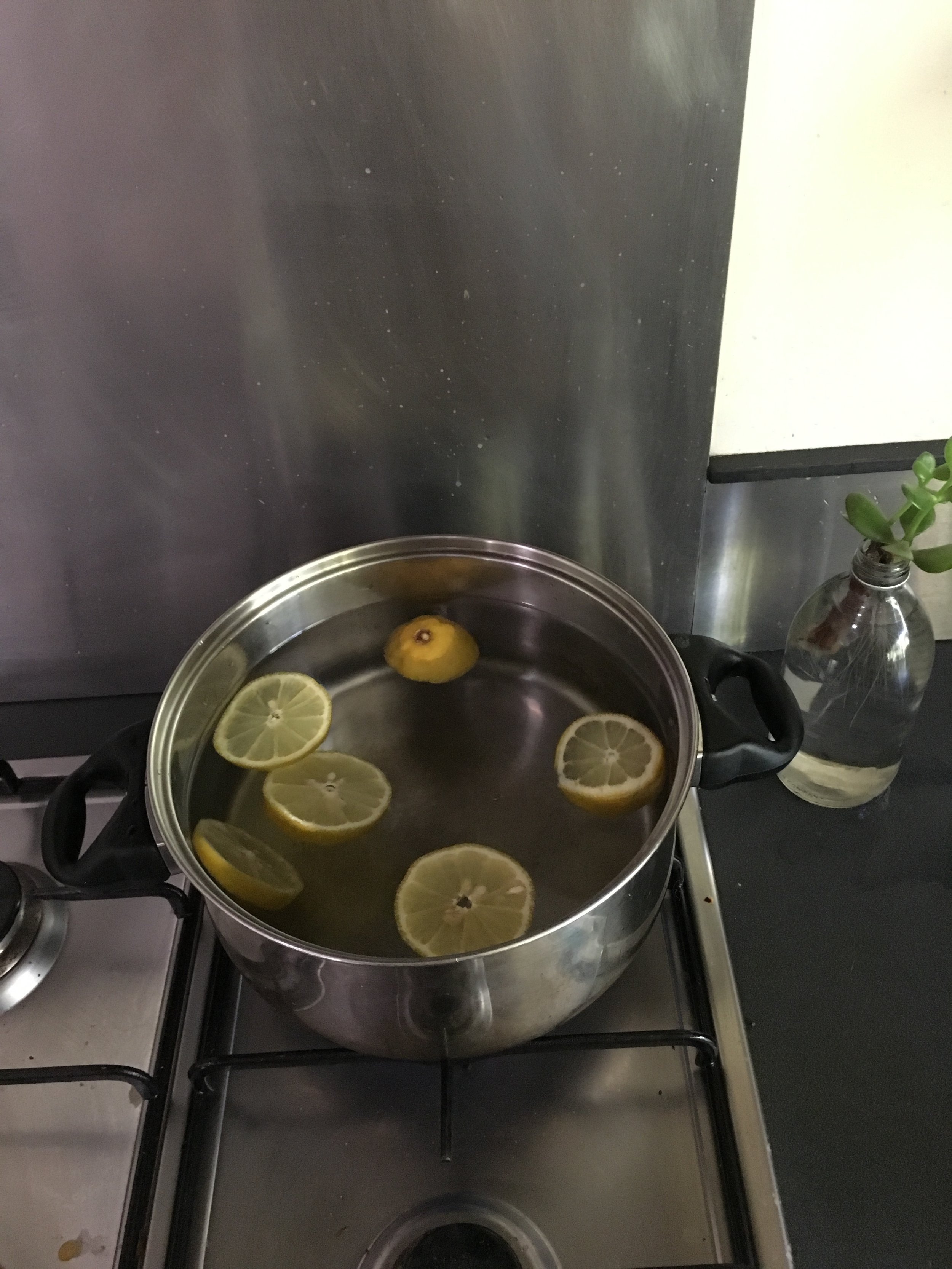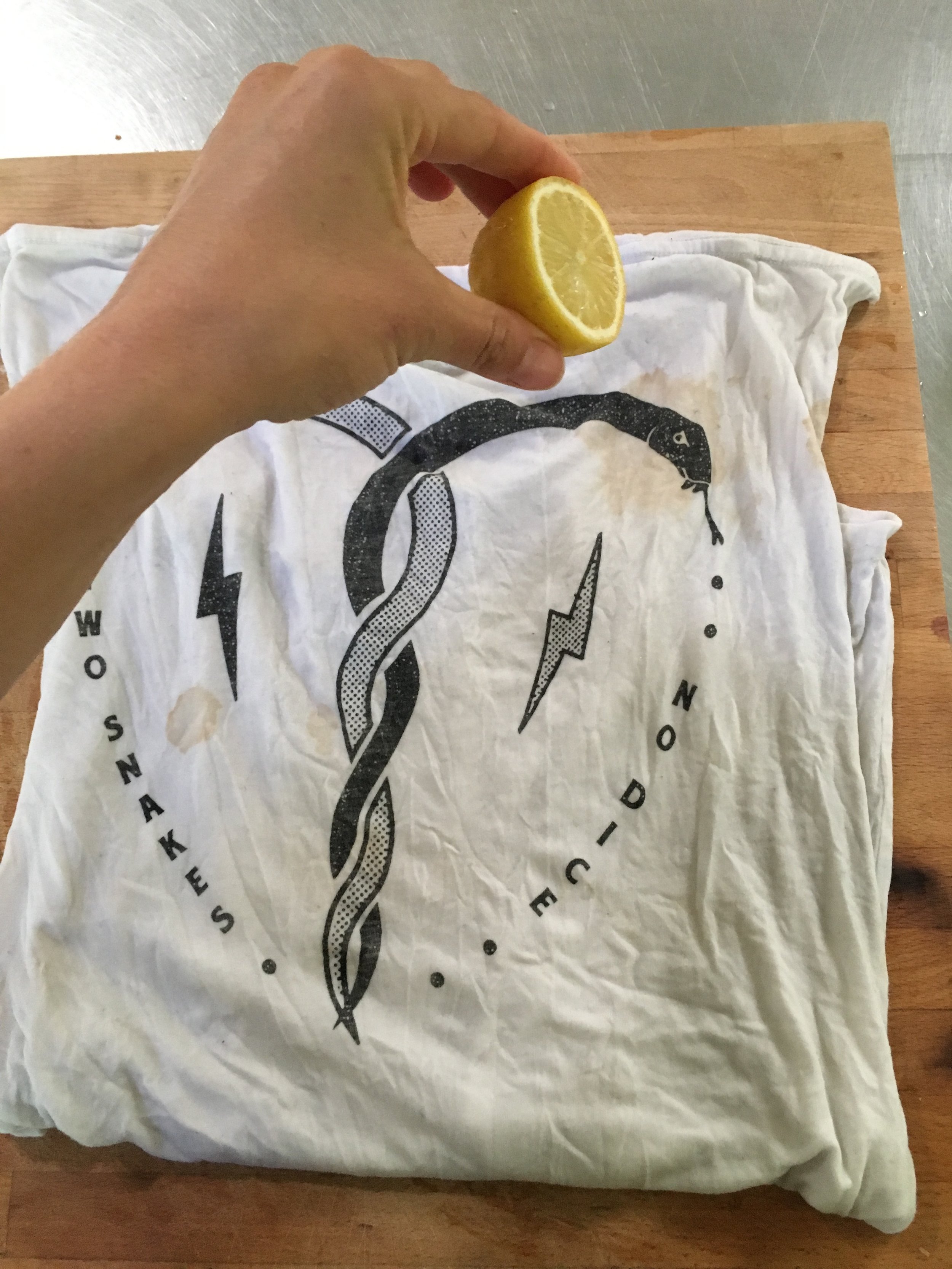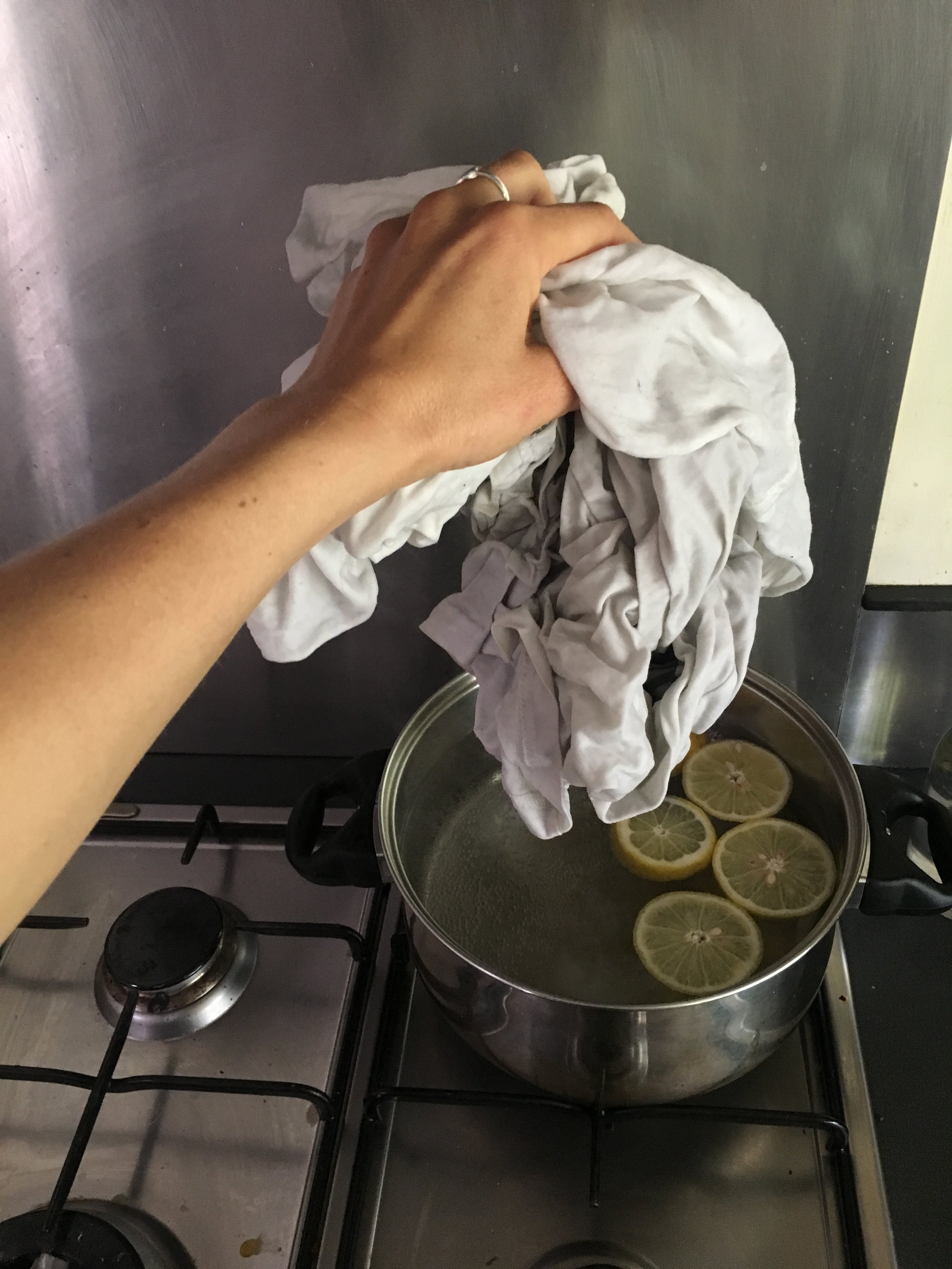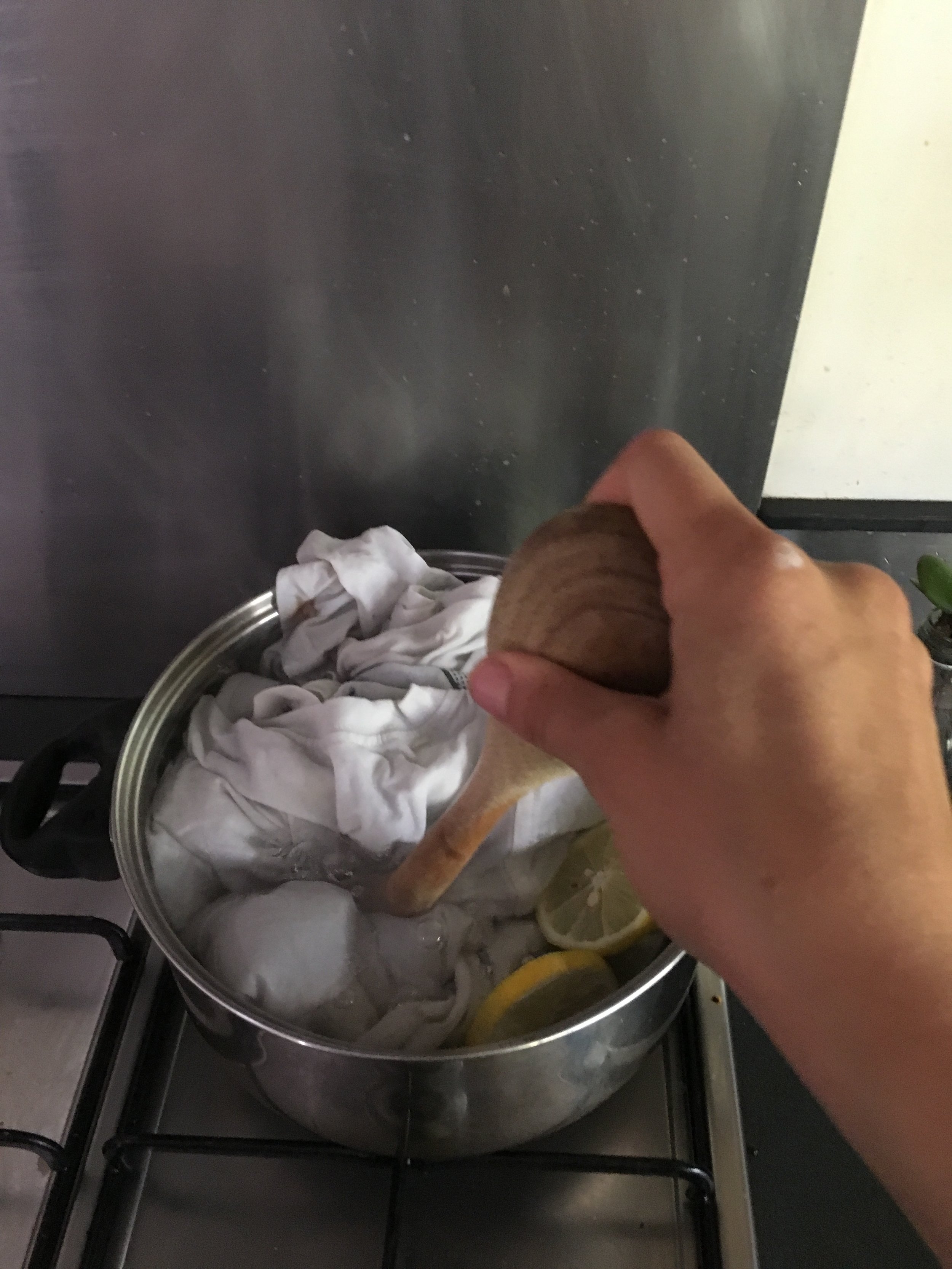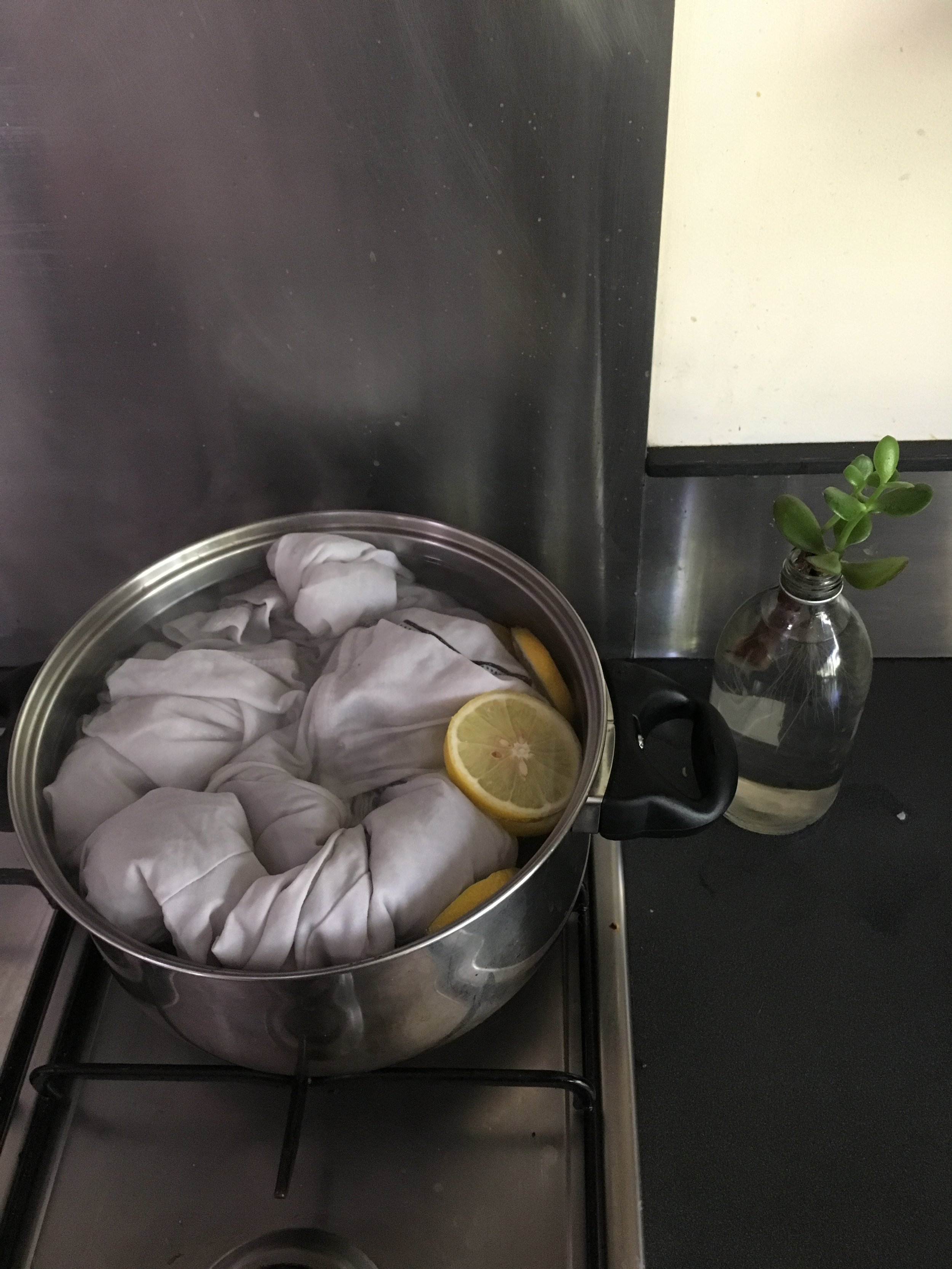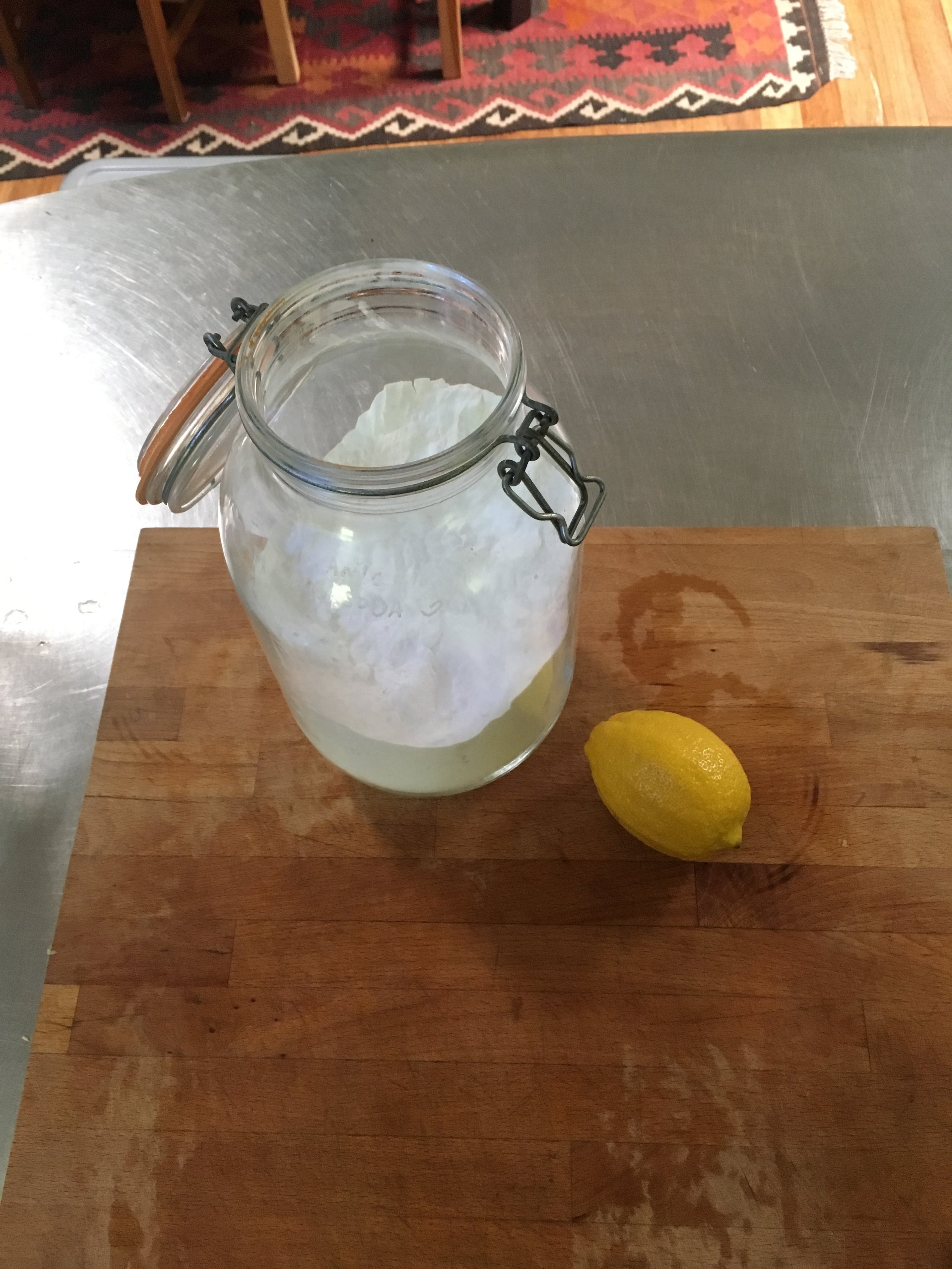Natural Stain Removal, Clothing Whitener, & Plastic Free Laundry Hacks
While I grew up with it, I have honestly found plastic bottles of BLEACH on beaches. F THAT.
Now I use strong, NATURAL chemicals to whiten my clothes and remove stains. The main hacks are bicarb soda, salt, & lemon juice!
1. For stains, especially if you spill something dark, straightaway pour salt on it to absorb moisture from the spill. Later when appropriate to strip to your skin, apply lemon juice directly to stains. For tough stains, mix lemon juice with baking soda and apply directly to stain.
2. Soak whites in a solution of water + lemon juice. Fill a large pot with water & a sliced lemon. Bring to a boil, turn off heat, add clothing or linens. If delicates, wait a few minutes to reduce stress on fabrics. Let soak for an hour. Then wash as usual.
3. Wash whites with bulk bought washing soda or powder. If you are low on washing powder, you have options. Mix in 1/2 scoop of dish powder with regular wash powder. If no powder, prepare a solution of soap, a tablespoon of salt, + the juice of 2 lemons. Soak your clothing in this mixture, then rinse & dry in the sun.
4. After washing, hang whites to dry in the sun. Sunlight naturally bleaches without setting stains the way a dryer does. Use wooden pegs, plastic pegs break & become trash. Wooden pegs rarely break, when they do, they are handy kindling for the backyard firepit.
5. Rinse under tap, & save the lemon slices to soak in a large jar of water (distilled if pos) for a concentrated citrus cleaner. Can use to soak future whites or as a general kitchen/bathroom cleaner!
Washing machines are a bit controversial at the moment. The jarring cleansing motion shakes both organic and synthetic microfibres loose, which are too fine to be caught in the water treatment systems meaning they travel out into the waterways, which of course eventually drain to the oceans. Microfibres are a pollution problem because they can be mistaken for food by marine life--big and small. They can interrupt normal feeding and digestion processes and leach chemicals such as colorants and other additives. In addition, plastic bits can attract and absorb persistent pollutants such as pesticides and flame retardants that cause damage if ingested by an animal.
These are one of the biggest threats to our oceans, but they are too microscopic to be seen by our eyes, so this issue is commonly passed over. Additionally, it is hard to know a solution, since by law we are required to wear clothing and by social courtesy, clean clothing. So washing is necessary, as we definitely want to reuse our clothes...
Although not everyone is of this mindset! Australians buy an average of 27 kilograms of new textiles each year and then discard about 23 kilograms into landfill. Disposable clothing is a thing! Try to buy only what you need or know you will love. Try to buy vintage, do clothes swaps, buy organic clothes, avoid synthetics. I do promote recycled plastic clothing, because I feel it is good to support innovative industry; however, research is suggesting this clothing can shed more microfibres than virgin plastics since the fibres are weaker after the recycling process. Sheesh.
Invest in a microfibre trapping device the GuppyFriend or the Cora Ball. Please aim to get a filter on your water waste pipe or hand wash your clothes and dump the waste water in a corner of your backyard. With time, you may begin to notice the microfibres in the dirt!

